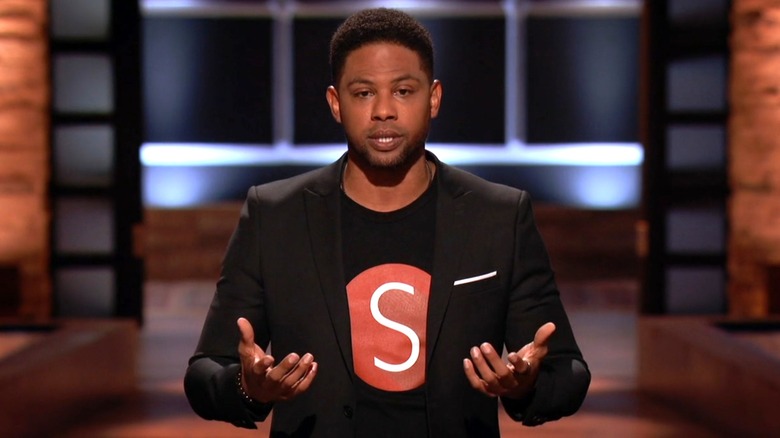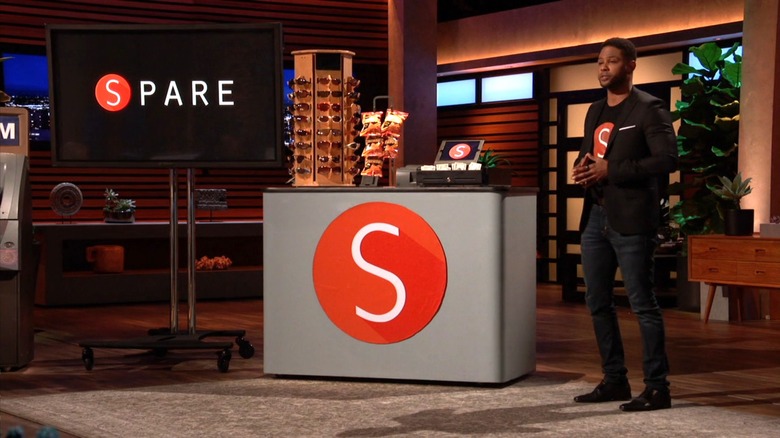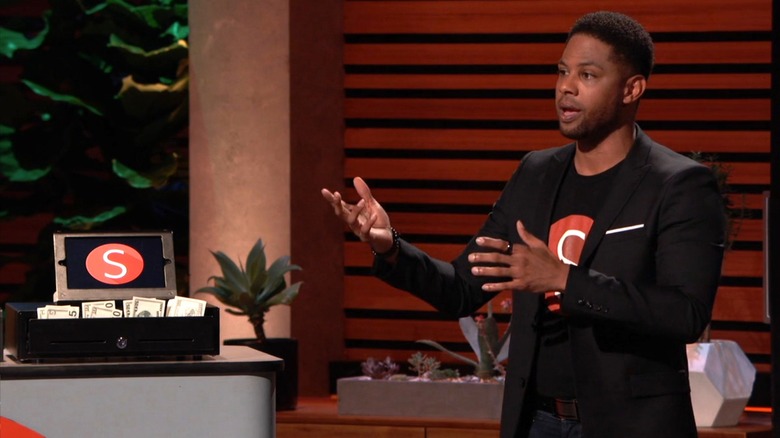What Happened To Spare From Shark Tank Season 10?
We may receive a commission on purchases made from links.
"Shark Tank" is a high-pressure environment where entrepreneurs pitch their dreams and visions to a captive audience of insanely wealthy investors. Personalities like Mark Cuban and Kevin O'Leary ask stinging questions and scrap with one another for the chance to invest in some of the most interesting new ideas on the market, such as Season 9's Gunnar Glasses or Season 12's Flipstik. Sometimes they get it wrong, however, making the show even more intriguing for viewers sitting at home and querying the product or business for themselves. The Ring Doorbell, for instance, didn't get an investment from the Sharks when Jamie Siminoff pitched the idea and business (then known as DoorBot) on the show in 2013. He sold the company to Amazon for over $1 billion a few years later.
One innovative pitch that came across the "Shark Tank" atrium in 2019 was Spare, brought to the Sharks by D'Ontra Hughes. Envisioned as a way for customers to withdraw money without substantial ATM fees, Spare effectively lets users use the cash-back option from stores without necessarily buying anything. Hughes initially sought an investment of $500,000 for a 3.5% share of the company and left as the proud new owner of a deal with Mark Cuban, albeit for all the cash and a 12% plus 2% advisory share stake in the brand.
What happened to Spare after Shark Tank?
While D'Ontra Hughes negotiated with Mark Cuban and accepted his counteroffer while on the show, the deal never closed, and Cuban ultimately didn't invest in the company. As of July 2019, the deal was still in progress, and it wasn't listed on Cuban's website as a brand he had invested in as a part of the show, which is standard procedure.
Two years later, in June 2021, the deal was still not finalized. Unfortunately for Hughes, the "Shark Tank" appearance didn't yield the investment he had hoped for. However, showcasing a brand on the program remains a great way to create buzz around a service, product, or business, and this undoubtedly has played a role in Spare's continued journey. Even without the investment from Cuban, Spare remains in business and sported an annual revenue figure of $4 million in late 2023.
The cash infusion would have sped up the merchant acquisition process significantly, considering that Hughes mentioned his goal of hiring part-time employees to refer new merchants to the network. At the time, Spare was only available in Apple's App Store but is now offered for both Apple and Android users.
Spare was built to rethink the relationship between cash and users
The use case for Spare is a unicorn of sorts. Many solutions brought to the market help a particular segment of users while offering some tertiary benefit to merchants, advertisers, or some other slice of the market. Spare presents itself as a fast and effective means of taking out cash while also helping local merchants reduce cash on hand –- a problem that would otherwise require frequent visits from an armored truck or various other fraught methods of transport to a bank. The service also pays businesses to dispense cash to users, making it a genuinely positive experience for those on both sides of the interaction.
The company estimates that its retail partners can significantly improve their organic foot traffic and earn up to an estimated $75,000 annually just by participating in this cash exchange program. For consumers, the company has reported that many withdrawals can be made free of charge (with a maximum fee of 5%). With a growing network of participating merchants, the service may be poised to launch a shift in the relationship that all types of users have with physical cash. Despite the "Shark Tank" deal falling through, Spare appears to be thriving.
"Shark Tank" is available for purchase on Prime Video.


